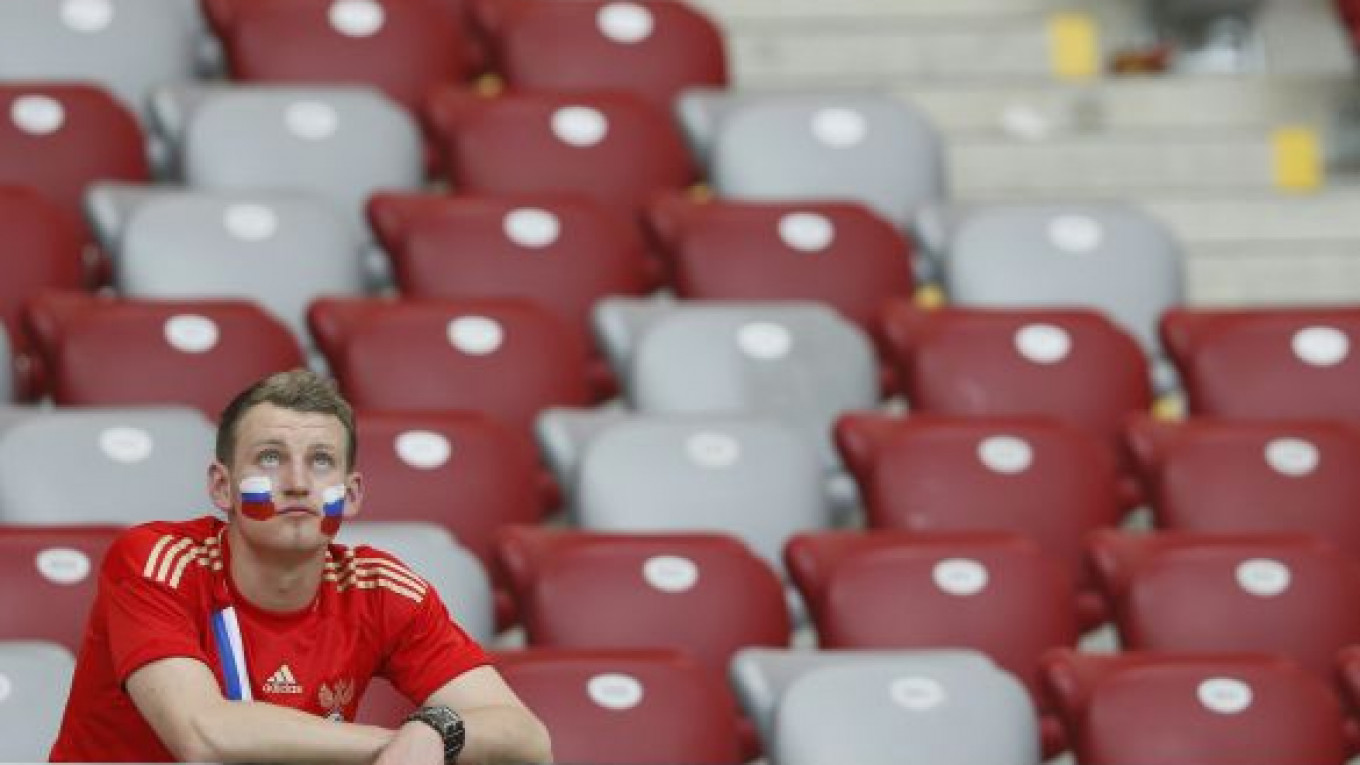WARSAW, Poland — Andrei Arshavin said as the European Championship began that Russia could beat any team. He added that they could also lose to anybody.
The enigmatic Russians lived up to their captain's word. With a team built around 11 players who ended third at Euro 2008 and another Dutch coach, Dick Advocaat, Russia was tipped early to be a dark horse at the tournament in Poland and Ukraine.
When it thrashed the Czech Republic 4-1 in its opening Group A match, Russia was touted as a tournament favorite. But it turned out the big win in Wroclaw was the high water mark, not the start of something big. The Russians were eliminated Saturday after losing 1-0 to Greece at the National Stadium in Warsaw.
Ultimately, Russia was undone by its insistence on attacking.
When veteran Greece coach Fernando Santos studied video of the Russians, he saw that the team's strength in attacking could also be its weakness.
"When we had the ball, we tried to exploit gaps in their defense," he said. "Because they were pushing forward, that gave us space."
The Czech Republic never had a chance to use that space, as Arshavin orchestrated a thrilling lesson in Dutch-style attacking football. And while the Russian team was one of the tournament's oldest, it showed in Wroclaw that it had one of Euro 2012's young stars — Alan Dzagoyev, 21, who scored a goal in each half against the Czechs, and went on to give Russia the lead in its 1-1 draw with co-host Poland.
The CSKA Moscow attacking midfielder's name has been linked with major European clubs and he said he would make a decision about his future only after the tournament.
The future is less clear for other stars. Arshavin spent the second half of last season on loan to Zenit St. Petersburg after Arsenal manager Arsene Wenger said he needed more playing time, which he was not getting in north London. The 31-year old star of Russia's campaign at Euro 2008 started with an inspired performance against the Czechs and provided the inviting cross for Dzagoyev's goal against Poland, but could not find a way through the stifling Greek defense when it mattered most.
It is unclear where Arshavin will be playing next season.
"A number of players didn't have the sharpness to score," Advocaat said. He was talking about the loss to Greece, but could also have been describing the draw with Poland, in which his team also dominated but only scored once.
Saturday's Euro 2012 exit also marked the end of Advocaat's Russia reign. He joins Dutch club PSV Eindhoven next season.
As Russia's players trudged dejectedly to their team bus Saturday night, the country's football federation chief, Sergei Fursenko, hinted that the post-Advocaat era could begin with a clearing out of the old guard.
"We have one of the oldest teams in the competition, and I think some of the younger players didn't get a proper chance to play," he said.
A Message from The Moscow Times:
Dear readers,
We are facing unprecedented challenges. Russia's Prosecutor General's Office has designated The Moscow Times as an "undesirable" organization, criminalizing our work and putting our staff at risk of prosecution. This follows our earlier unjust labeling as a "foreign agent."
These actions are direct attempts to silence independent journalism in Russia. The authorities claim our work "discredits the decisions of the Russian leadership." We see things differently: we strive to provide accurate, unbiased reporting on Russia.
We, the journalists of The Moscow Times, refuse to be silenced. But to continue our work, we need your help.
Your support, no matter how small, makes a world of difference. If you can, please support us monthly starting from just $2. It's quick to set up, and every contribution makes a significant impact.
By supporting The Moscow Times, you're defending open, independent journalism in the face of repression. Thank you for standing with us.
Remind me later.






